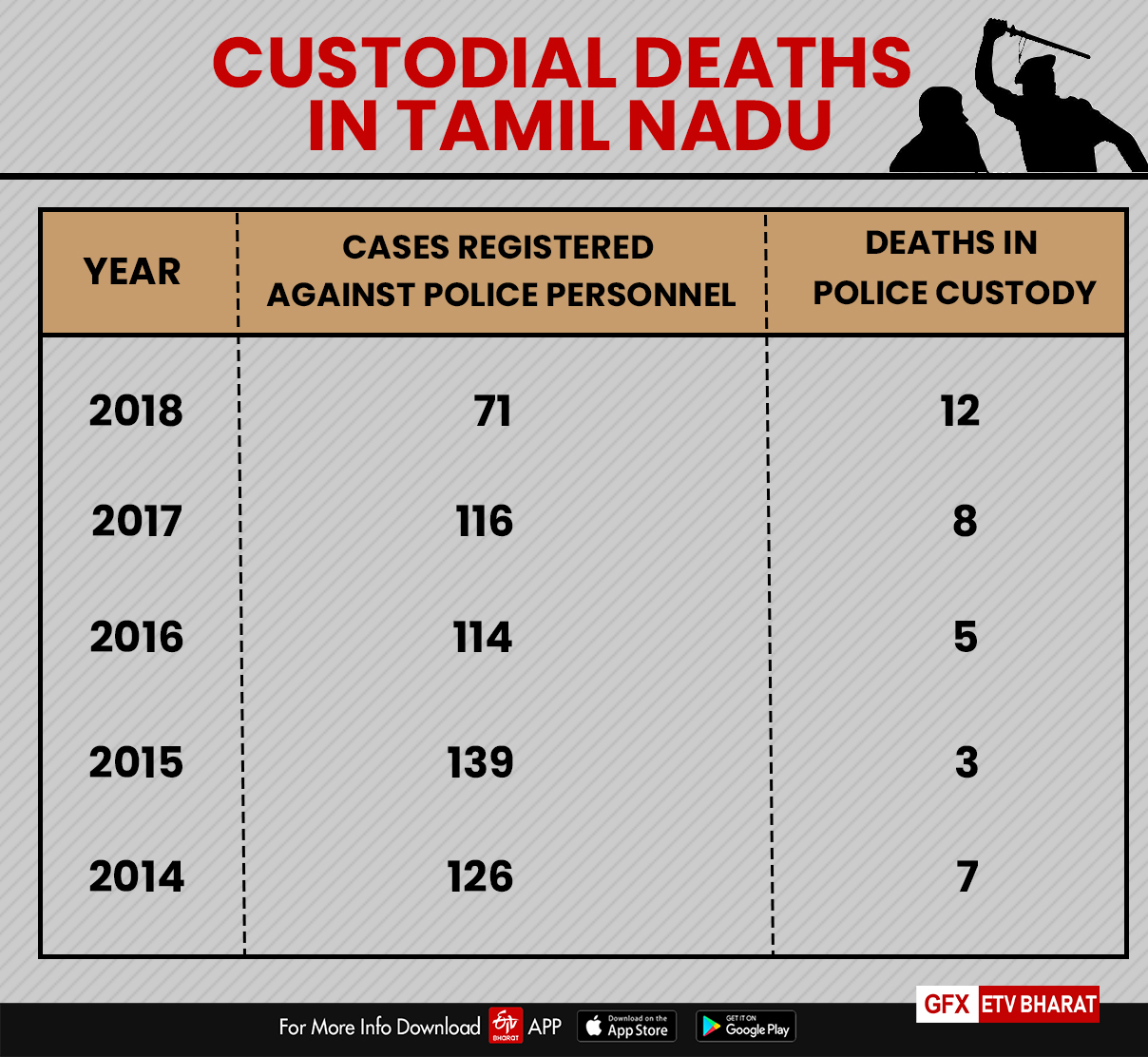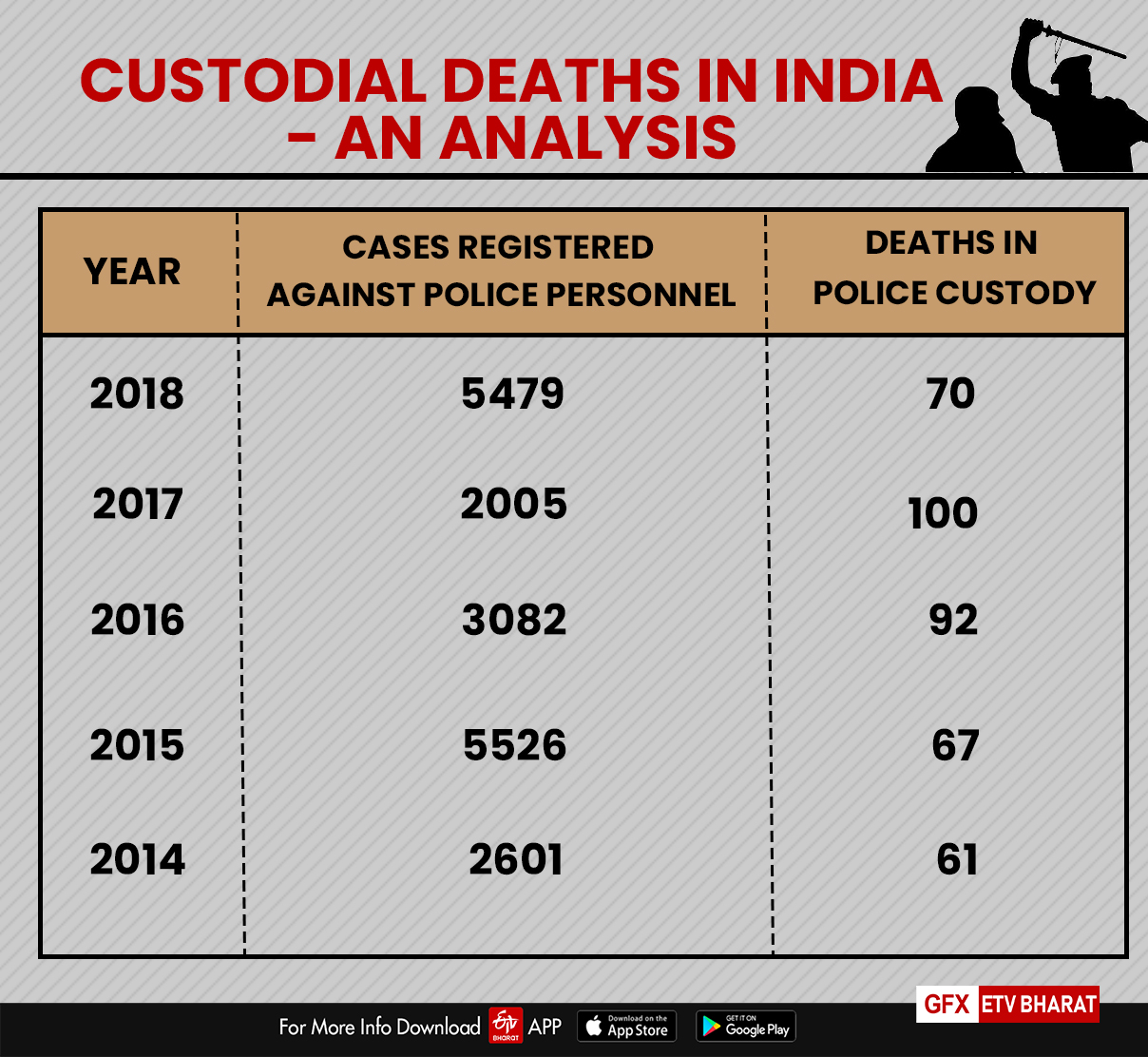Hyderabad: The death of a father and son P. Jayaraj (58) and his son J. Beniks (31) due to alleged custodial torture in Sathankulam town near Thoothukudi in Tamil Nadu has sparked rage across the state and the nation. According to the Annual Report on Torture India 2019, 1,606 of the deaths happened in judicial custody and 125 in police custody.

Findings of survey reports on Police Functioning
- The Lokniti team at the Centre for the Study of Developing Societies (CSDS) found that less than 25% of Indians trust the police highly (as compared to 54% for the army).
- The Status of Policing in India Report 2019 (Common Cause–CSDS 2018) highlighted that every two out of five people in India are afraid of the police.
- A study by the Tata Institute of Social Sciences (2018) reports that unruly behaviour of police deters about three-fourth of the Indian population from reporting complaints.
- India signed the UN Convention Against Torture on October 14, 1997, but is yet to ratify it by enacting the law on torture. India has not only failed to ratify the united nation’s convention on human torture but has also refrained from passing the prevention of torture bill, 2017. An Analysis of custodial deaths in India!

The Supreme Court order and its poor implementation
- In 2006, the Supreme Court issued seven directives for police reform in Prakash Singh and others vs Union of India and others. The sixth directive required each State and Union Territory to constitute Police Complaints Authorities (PCAs) at the State and district levels with immediate effect.
- These are external bodies to receive and inquire into people’s complaints of police misconduct on issues ranging from custodial rape/attempt to rape/death, grievous hurt, and corruption to illegal arrest or detention.
- The intention behind the PCAs is to ensure that a local mechanism specialised in handling a wide ambit of complaints against the police, including the most serious, is readily available to the public at large. Changing the policing culture and making it thoroughly professional is a long-term goal of the PCAs.
Its implementation
- The Commonwealth Human Rights Initiative (CHRI) monitors the functioning and progress of the PCAs, which is seemingly inadequate.
- According to the CHRI, states have either created PCAs only on paper or have chosen to ignore the court directive.
- States that have operational PCAs are Assam, Chhattisgarh, Goa, Gujarat, Haryana, Jharkhand, Karnataka, Kerala, Maharashtra, Meghalaya, Nagaland, Punjab, Rajasthan, Tripura and Uttarakhand. Seven Union Territories have operational PCAs. Only Assam, Karnataka, Kerala, Maharashtra, Nagaland and Rajasthan have them at both State and district levels.
- The States that have not operationalised the PCAs include West Bengal, Uttar Pradesh, Telangana, Tamil Nadu, Odisha, Himachal Pradesh, Bihar and Andhra Pradesh.
- Madhya Pradesh has opted to set them up only at the district level. Twenty-two States selected personnel to the PCAs without having an independent panel selecting them from a shortlist as mandated by the court.
READ: Tamil Nadu Sathankulam deaths: 6 booked on murder charges; SI arrested



